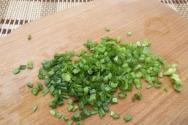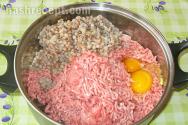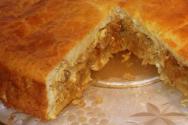Replace the juice of 1 lemon with citric acid. What can you replace lemon juice with? Useful tips
Citric acid is a product that can be found in any home. It is widely used both for preparing various dishes and in everyday life, as a cleaning agent or as a component for whitening lotion and hair rinse. What can be replaced citric acid, if it’s over, some simple advice will tell you.
Curious! Citric acid was first obtained from unripe lemons, hence its name. The first to synthesize it was the Swedish pharmacist Karl Schleele in 1784. Now it is obtained synthetically from beets.
Citrus fruits instead of citric acid
- The most natural alternative to citric acid when preparing various dishes is regular lemon or lime.
On note! The juice of 1 lemon can replace 1 teaspoon of citric acid. When preparing desserts, to replace citric acid, a few drops to 1-2 teaspoons of lemon juice will be enough.

- If you don’t have lemon on hand, oranges or tangerines will do the job of replacing citric acid.
On a note! Citrus fruits will not only provide the necessary acidity to the dish, but will also enrich its aroma and taste.
The most successful option would be to replace citric acid with citrus fruits when preparing:
- creams: protein, butter, custard;
- sweets;
- meringue;
- mousse;
- syrups;
- baking powder for dough;
- fillings for pies, pastries and cakes.
Citric acid is added to the dough to give baked goods a pleasant taste with a slight sourness. Using instead citrus zest, vanillin or cinnamon, you can get not only tasty, but also very aromatic baked goods.
On a note! A few drops of lemon juice will allow you to easily whip the whites into a strong foam, prevent it from settling, and make it snow-white.
Citric acid, being an excellent anti-crystallizer, is an integral component of syrup and fondant recipes. Thanks to its addition in a strictly defined concentration, you can get a thick, non-candied syrup that is perfectly whipped into fudge. Replacing the acid with lemon, you will have to play around to achieve the required concentration of acid in the product.

How to replace citric acid in canning
When preparing compote, jam or jam from serviceberry, quince, gooseberry or chokeberry There is no way to do without citric acid, because it is what gives them their piquant sourness. IN in this case Instead of citric acid, you can use orange or lemon zest and citrus juice or applesauce and zest.
Sour berries instead of citric acid
Citric acid is a component often used in preservation to highlight the taste of sweet berries and fruits or to protect compotes and jams from spoilage. Some recipes for canned and pickled vegetables also recommend using citric acid as a preservative. Typically, recommendations to replace vinegar with citric acid are associated with gastrointestinal problems. But if citric acid is not on hand, then you can use whole berries instead:
- red currant;
- cranberries;
- lingonberries.
Sour berries will add an original flavor to pickled cucumbers, zucchini, peppers, and tomatoes.

On a note! Instead of citric acid when canning vegetables, you can use the following in a 1 liter jar:
- 200 g red currants or,
- 200 g rowan or,
- 100 g lingonberries or,
- 100 g cranberries or,
- 100 g Chinese lemongrass or,
- 0.5 l fresh tomato juice or,
- 100 g sorrel or,
- 1 sour apple or
- ½ small bunch of grapes or,
- juice of ½ lemon.
The berries are washed and placed in jars with vegetables, and it is recommended to pre-boil and puree the sorrel, and then add it to the jars. Based on sorrel decoction, you can prepare an excellent brine for pickling cucumbers.
By using sour berries, fruits and vegetables as natural preservatives, homemade preparations will become not only tastier, but also healthier.

Natural juice instead of citric acid
Juices obtained from fruits and berries contain a significant amount of organic acids and are quite capable of replacing citric acid in the preparation of some dishes:
- desserts;
- compotes, jelly and other drinks;
- jams and marinades;
- sauces and gravy.
On a note! Citric acid is often used as an essential component of meat marinades. For example, a leg of lamb is marinated in a marinade with the addition of citric acid: ¼ teaspoon per 2 kg of meat with bone. In this case, instead of acid, you can use grape or pomegranate juice. They will not only make the meat tender, but also add a pleasant taste.
For these purposes, it is better to use natural, unsweetened juice:
- grape;
- pomegranate;
- cherry;
- cranberry;
- apple.
On a note! Sour fruit or berry juice, added when cooking jam, will allow the fruit not to lose its attractive appearance and the jam not to become sugary.

Vinegar instead of citric acid
When preparing marinade for cucumbers and other vegetables, you can use vinegar instead of citric acid:
- apple;
- wine;
- dining room
Natural fruit vinegar, obtained by microbiological method, retains all the bioactive substances contained in the fruit, so replacing the acid with natural fruit vinegar will only bring health benefits.

Apple and vinegar can also be used instead of citric acid when preparing dishes from fruits and berries. It will be enough to add 1-2 teaspoons of fruit vinegar at the end of cooking.
On a note! 5 teaspoons of 3% vinegar can replace 1/2 teaspoon of citric acid. 4 teaspoons of 9% vinegar will replace 1 teaspoon of citric acid.
In everyday life, citric acid is actively used to descale teapots. In this situation, table vinegar and soda can replace it.

As you can see, there are many ways to replace citric acid. Some of them, in their qualities, not only fully compensate for the lack of citric acid, but also improve the taste and aroma of the dish. In some cases, replacing citric acid is quite troublesome, since it requires experience to adjust the desired percentage of acidity of the dish.
Lemon juice is used in cooking to add piquancy. various dishes. But fresh fruit is not always available. Is it possible to replace lemon juice and with what? You will find the answers in this article.
How to replace lemon juice in baking? Vinegar or citric acid will help
What recipes use lemon juice?
Lemon juice contains many valuable elements, the most important of which is ascorbic acid. It helps improve memory and attention, prevents inflammatory processes and tones the body. At the same time, the product is low in calories.
Juice is used as an addition to dishes:
In salad dressing;
For marinating;
As a component of gourmet sauces;
For the production of soft drinks;
For baked goods and creams.
Lemon juice is sprinkled on prepared fish and meat dishes to give them piquancy and reveal the aroma of the main spices.
But most often, lemon juice and zest are used in baking. They are added to dough or cream. If you prepare the cream with eggs and butter, it will delight lovers of sweets not only with its pleasant taste, but also with its unusual consistency. It does not contain much moisture, so it will not spread over the pastry or cake and will retain its volume.
You can replace milk or water with juice when creating fudge. The juice is used in large quantities to make desserts with ricotta cheese.
What can you replace lemon juice with?
Most often, in the absence of fresh lemons, concentrated lemon juice is used - it is sold in most supermarkets. Available required ingredient from lime, grapefruit, rhubarb, sour apples. You can extinguish soda with cranberry or sea buckthorn juice.
How to replace lemon juice in baking? To do this, use table vinegar at a concentration of 6%, apple cider vinegar and wine vinegar. This composition can not be diluted or a little can be added to it. olive oil, if you are making a dressing for salads and sauces. If you take regular 9% vinegar, you need to dilute it with water in equal proportions.
Syrup or citric acid is used as a replacement for natural juice.
How to replace lemon juice with citric acid? To do this, you need to dilute a pinch of acid in 50 ml of warm water and cool. If a brighter sourness is required, then add half a small spoon of apple cider vinegar to this composition.
(8
votes, average rating: 3,88
out of 5) To make lemon juice, of course the best and easiest way is to take an ordinary lemon and squeeze a little juice out of it. When can artificial lemon juice come in handy?
Sometimes you don't really want to cut a whole lemon just to squeeze a few drops of juice out of it. It also happens that you just don’t have any lemon on hand, but to prepare the desired dish you urgently need lemon juice. Even if the lemon is in the refrigerator, it can easily freeze or simply rot. Then you will have to throw it away and make lemon juice from the acid of the same name as the fruit. After all, citric acid will not freeze or rot. It can stand on a kitchen cabinet shelf for a long time without any negative changes. The main thing is to make sure that you take exactly the bag of citric acid. In my experience, there have been cases when cooks simply confused citric acid, for example, with vanilla essence. In each of these cases, the dish was irrevocably spoiled. In fact, answering the question How to make lemon juice from citric acid is not at all difficult. After all, a few pinches of citric acid will easily and quickly turn into lemon juice in skillful hands. It only takes a couple of minutes to prepare the juice. The main thing in this matter is not to make a mistake with the proportions. Otherwise, the taste of the prepared dish will also suffer significantly. Which manufacturer to choose citric acid for making juice does not matter at all. After all, citric acid from any manufacturer is almost the same. Compound
The composition of artificial lemon juice is simple and clear! You only need to take 1 teaspoon of dry citric acid powder and 2 teaspoons well warm water. If a larger amount of artificial juice is required, then you should remember that the ratio of acid and water will always be 1 to 2, respectively. Cooking process
To prepare juice from acid, you need to pour one teaspoon of lemon, pour it into a clean and dry mug. To prepare juice, it is better to choose glass or earthenware dishes. After all, the aluminum mug itself will darken from the acid, and will give the juice an unnatural and not very appetizing appearance. The acid in the mug should be filled with well-warm boiled water in a ratio of 1 to 2. If there is no warm boiled water, then you can use cold water. But then, you need to let the acid dissolve for 5-7 minutes, stirring the solution periodically. If hot water was used, then the artificial lemon juice will be ready within 10 seconds after dilution. Lemon pie: a holiday on your table

Even tastier here:
 Exotic delicacy– banana jam
Exotic delicacy– banana jam
Quite often in culinary recipes There is an instruction to “sprinkle the dish (mainly salads) with lemon juice.” Citrus fruits are generously added to baked goods. Sour lemon juice makes it less cloying. Citrons are added to both dough and creams. They use both the zest of the exotic fruit and candied pieces of pulp and skin. But most often the ingredient in dishes is lemon juice. It is added both to soups (for example, solyanka) and to drinks - tea, alcoholic and refreshing cocktails. This article is devoted to one question: is it possible replace lemon juice with lemon juice acid? And if so, how to introduce white crystals into a dish? What are the proportions? What needs to be done to make the dish taste as if it contained natural lemon juice? You will read about this below.
What is citric acid
What exactly is this white crystalline powder? Undoubtedly, this is a synthetic material. And before we clarify the question of whether lemon juice can be replaced with citric acid, we must establish the connection between these two products. Does synthetic powder have anything in common with citrus fruits? Citric acid was first extracted in history by the Swedish pharmacist Karl Scheele in 1784. How did he get it? He isolated it from the juice of unripe lemons. As you can see, there is a direct connection between these products. The resulting powder is a tribasic carboxylic acid. It dissolves perfectly in water when it reaches at least eighteen degrees. Citric acid also combines well with ethyl alcohol. Therefore, it can be used to make homemade tinctures and vodkas. But the powder is poorly soluble in diethyl ether. 
Industrial production of citric acid
Any reasonable person will ask: if the powder is extracted from citrus fruits, then why is it so much cheaper than fruit? After all, the eighteenth-century apothecary evaporated natural juice to get white crystals. Then they began to add shag biomass to lemon juice. This plant also contains large amounts of this acid. In modern times, industrial production produces powder by biosynthesis from molasses and sugar using strains mold Aspergillus niger. Citric acid is used not only in cooking, but also in medicine (including to improve metabolism), cosmetology (as an acidity regulator) and even construction and the oil industry. The global production volume is more than one and a half million tons. And about half of this amount is produced in China. In light of this, the question of whether it is possible to replace lemon juice with citric acid seems even more relevant. Especially if the label says: “Made in China.” 
Benefits of citric acid
Synthetic powder is widely used in the food industry and is labeled as E330-E333. But is this completely safe? flavoring agent, is it possible to replace lemon juice with citric acid without harm to the body? The powder is used in the food industry, not only to improve the taste of the product. Citric acid prevents the development of microorganisms, the appearance of mold and unpleasant odors. Therefore, E330 is also used as a preservative. Despite the fact that citric acid is no longer extracted from fruits, it, like citrus fruits, improves vision, strengthens the immune system and has a positive effect on the digestive system. Since it speeds up metabolism, it is used in diets to reduce excess weight. This substance removes toxins, waste, and harmful salts from the body. 
Harm of citric acid
Not all people can tolerate citrus fruits. These fruits can cause an allergic reaction. Likewise, citric acid is unacceptable to some people. It should be used with caution by patients with gastritis and stomach ulcers. But we wondered: can citric acid replace lemon juice? The time has come to answer it. Yes maybe. But in the case of powder, care must be taken not to make the solution too concentrated. After all, then this can lead to discomfort in the stomach, heartburn, colic and vomiting. Undissolved powder should not be eaten as it causes burns to the mucous membranes.
Subtropical fruits cannot be called cheap. And most recipes only require a couple of drops or a teaspoon of lemon juice. The rest sits in the refrigerator for a long time, dries and withers. Whereas citric acid in a bag can be stored for years. And it costs mere pennies. Therefore, experienced housewives, when asked whether citric acid will replace lemon juice, usually answer: “Yes! And vinegar too! It can also be used to wash metal surfaces contaminated with limescale and rust.”
As for cooking, the range of dishes in which you can use both citrus juice and citric acid is quite wide. If you are kneading dough, you can mix a small amount of synthetic powder with flour. In other cases, the acid crystals must be dissolved in warm water until the concentration of regular lemon juice is reached. The proportions are like this. A small pinch (some recipes recommend on the tip of a knife) per fifty milliliters of warm water. The solution should be cooled.







